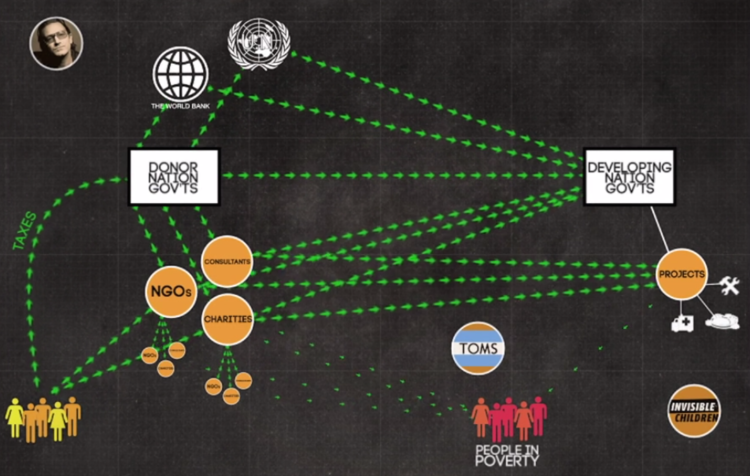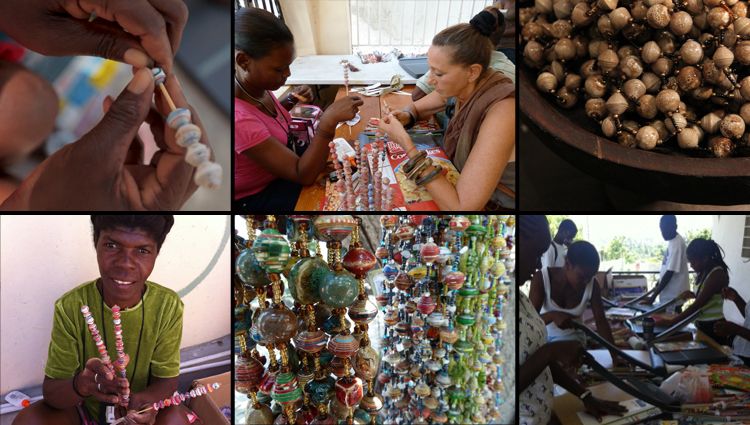The Business of Global Poverty
I recently watched the movie Poverty, Inc. It starts off with a paraphrased quote from Machiavelli - “The reason there will be no change is because the people who stand to lose from change have all the power. And the people who stand to gain from change have none of the power” (or are indifferent to change).
It’s only human to sympathize with people living in poverty. When we see images of poor people, our instinctive response is to help out by giving them a portion of our money or food or shelter. It appeals to our better nature, and its also what society has told us is the solution. But this doesn’t seem to be the best solution. The movie really showed me the bigger picture.
People in Africa have been getting aid for a long time now. Foreign aid has amounted to hundreds of millions of dollars, a very sizable subsidy! But this large scale aid has crippled the people of Africa - A lot of businesses in the area like rice and other crop farmers, Solar panel makers cannot compete with free. As a result, they are run into the ground and become part of the growing number of people who are poor.
A case in point is Tom’s Shoes. They had the best intentions at heart. For every pair of shoes sold in a developed country like the US, they would donate a pair of shoes in a developing country. There were so many children without shoes on their feet. Of course this seemed great! But it drove the demand for the shoes made by local cobblers straight to zero.
The movie also brings out an interesting perspective on Colonialism - The idea is that the countries who provide the aid also get to dictate how the aid money is spent. If they decide to favour certain businesses, the receiving country has to abide. This means that the receiving country is never free to pursue its own agenda and the government isn’t incentivized to make any changes to reduce poverty because they would lose all the free money and resources they’re getting. In addition, the NGOs that are part of the equation working with the government in different capacities would be out of a job. Why would they want that?
 The Poverty Industry as shown in the movie
The Poverty Industry as shown in the movie
Of course, it doesn’t mean that there aren’t innovators who genuinely care. A lot of people have realized how dangerous simple donation is to the economies of developing countries. The right thing to do is to partner with these countries and local businesses and help them grow. The movie tells us the story of an American couple who move to Haiti and helps many local women and men make simple jewelry that they then sell to big retailers in the US. Her employees began to feel empowered and soon realized they could fend for themselves and buy their own small homes and care for their children.
 Helping local artisans make jewelry
Helping local artisans make jewelry
It’s one of those things that seem obvious in hindsight - but if we really want to help, we should teach people how to fish, not just give them fish.
This movie shines a very realistic light on the state of our world and I recommend it for anyone remotely interested in social welfare. It shows us how everything is connected from celebrities to orphanages.
Having a heart for the poor is easy; having a mind for the poor, thats the challenge..
Watch the Trailer - https://www.youtube.com/watch?v=aqGQ1IRhdzg